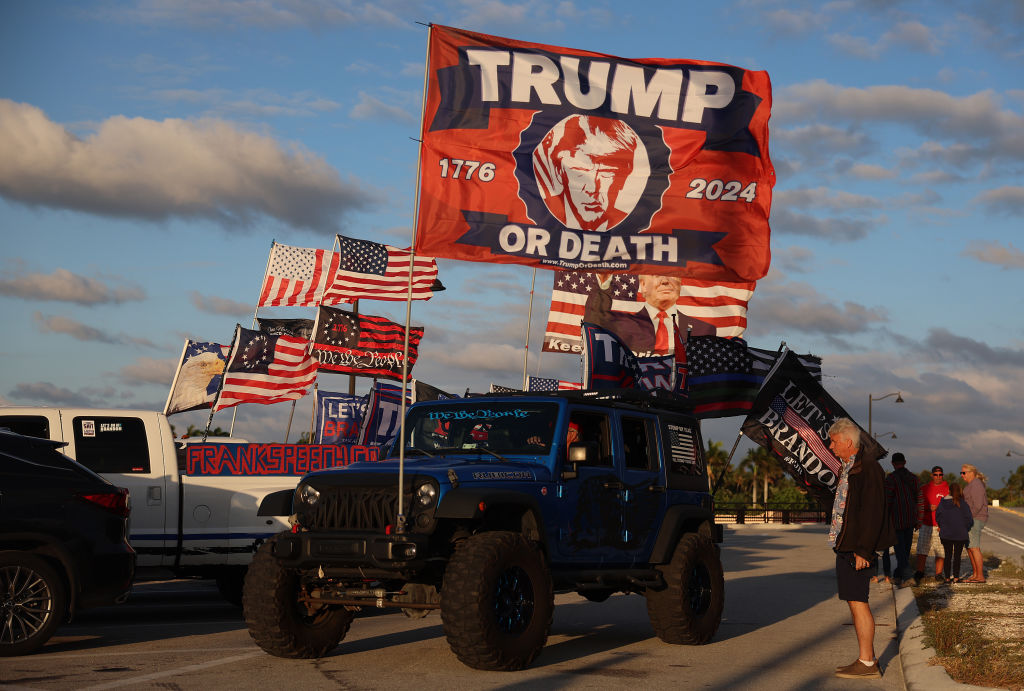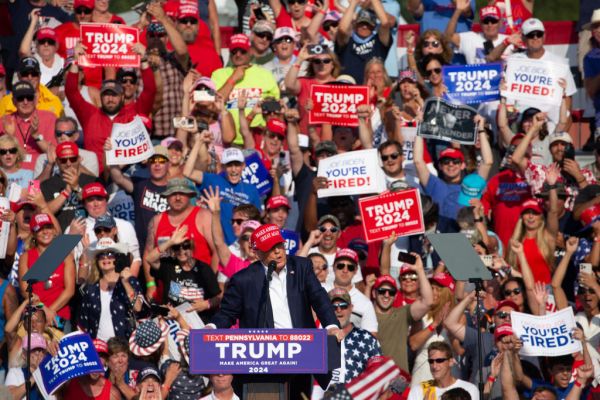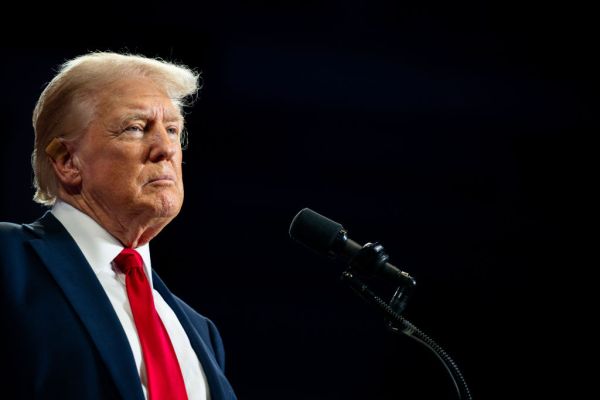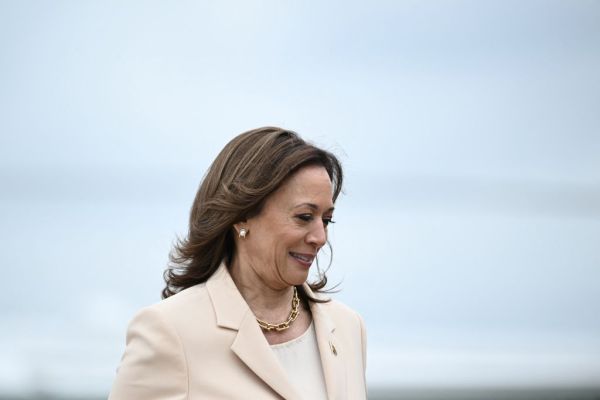“There is hardly any political question in the United States that sooner or later does not turn into a judicial question,” Alexis de Tocqueville, the brilliant observer of American life, wrote.
I’m pretty sure de Tocqueville didn’t have in mind scenarios like Donald Trump using a (now disgraced and disbarred) bagman-lawyer, Michael Cohen, to front hush money to a porn star and then recording the $130,000 reimbursement as “legal fees.”
But here we are. According to various reports—including panicked squeals in ALL CAPS from Trump himself—Manhattan District Attorney Alvin Bragg is preparing to indict Trump for exactly that.
Some further context is in order. As shocking as this may sound, Trump has not always felt particularly constrained by the holy bonds of matrimony. He famously cheated on his first wife, Ivana Trump, with the woman who would become his second, Marla Maples. The sordid spectacle, often at his urging, was on display in the New York media. Then in 1998, a year before Trump’s divorce from Maples was finalized, he met Melania Knauss, a Slovenian model. After dating for several years, they were engaged in 2004, married in 2005, and in 2006 she gave birth to their son, Barron.
Then with his months-old baby at home, Trump, then 60, allegedly had a sexual liaison with 27-year-old Stormy Daniels, the star of The Witches of Breastwick and Porking with Pride 2. Around the same time, Trump allegedly had an affair with Karen McDougal, a former Playboy playmate.
Testifying under oath, then-National Enquirer publisher David Pecker admitted that “in concert” with the Trump campaign the tabloid purchased the rights to McDougal’s story for $150,000 without any intention of publishing it “to prevent it from influencing the election.”
Trump opted to cut out the middleman and pay for Daniels’ silence directly, through Cohen. Unlike the National Enquirer’s “catch-and-kill” payment, there is nothing inherently illegal about paying hush money to hide an affair.
To make his case, Bragg is rumored to be working under the theory that by falsely recording the payment as a legal expense—typically a misdemeanor in New York—Trump committed a felony because it was in furtherance of another crime—disguising an illegal campaign donation.
Now, what disturbs me—other than Trump’s personal behavior— is that this is being discussed as a legal story. On one level, I get it. But I don’t think Bragg’s case is politically advisable or even legally sound. By preparing the first indictment of a former president on charges that probably would not have been used against anyone else, Bragg is helping Trump cast himself as a victim of a legal system out to get him. This will make other, weightier and worthier, potential prosecutions—such as pressuring Georgia officials to “find” votes and fomenting the January 6 riot—seem equally politically motivated.
But, as bad as that is, it’s not what offends me.
De Tocqueville’s concern was that the relegation of political questions to the courts results in legalism overpowering other considerations. The “spirit” of legalism “infiltrates all of society” until “the entire people” acquire “the habits and tastes of the magistrate.”
Presidential impeachments arouse this tendency the most. In each of the modern impeachments (Bill Clinton’s in 1998 and Trump’s in 2019 and 2021), the political debate ended up being monopolized by lawyers and technical questions of criminal guilt, even though impeachment trials are explicitly not criminal trials. For instance, on January 6, Trump may not have violated the legal standard for criminal incitement of violence. But is the president coming within millimeters of violating that standard therefore fine?
The upshot from that chapter was that so long there is no provable violation of law, a president deserves to stay in office. Legalistic rationalizations become an excuse for not making moral or political judgments.
Trump denies these affairs (not to mention the numerous credible accusations of sexual assault levied against him). But, amazingly, virtually none of his defenders seem to care if the accusations are true or about what it would say about his character if they were.
Instead, for many Republican politicians and voters alike, who still claim to care about “traditional values” in the abstract, the legal argle-bargle serves as squid-ink to hide in. All that matters is that Trump is a victim, not of his own tawdry excesses, but of the excesses that behavior invites in his enemies.









Please note that we at The Dispatch hold ourselves, our work, and our commenters to a higher standard than other places on the internet. We welcome comments that foster genuine debate or discussion—including comments critical of us or our work—but responses that include ad hominem attacks on fellow Dispatch members or are intended to stoke fear and anger may be moderated.